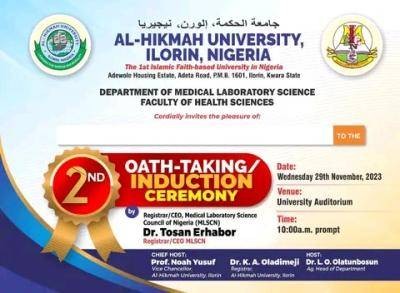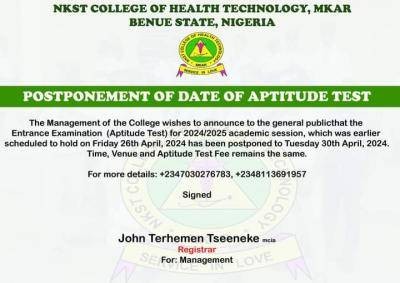
Located in the bustling heart of New York City, Columbia University stands as an emblematic institution celebrated for its academic prowess, research achievements, and lively campus ambiance.
With origins tracing back to 1754, Columbia has evolved into a symbol of scholarly curiosity, generating revolutionary breakthroughs, fostering creative minds, and influencing the trajectory of academia.
From its historic Morningside Heights campus to its far-reaching influence in various fields worldwide, Columbia University boasts a profound and illustrious history that serves as a source of inspiration for generations of scholars, innovators, and visionaries across the globe.
Academic Excellence at Columbia University:

1. Diverse Array of Programs:
Columbia University’s reputation for academic excellence is grounded in its diverse array of undergraduate, graduate, and professional programs. Catering to a broad spectrum of intellectual pursuits, Columbia provides opportunities for students to explore their interests and pursue their academic passions.
2. Columbia College:
At the heart of Columbia’s academic acclaim is Columbia College, the university’s renowned undergraduate college. Here, students embark on a journey of intellectual discovery, benefiting from a rigorous liberal arts education that emphasizes critical thinking, interdisciplinary exploration, and global citizenship.
Columbia College fosters an environment where students engage with diverse perspectives, challenge assumptions, and develop the skills needed to navigate an increasingly complex world.
3. Graduate and Professional Schools:
Columbia’s graduate and professional schools, including the Columbia Business School, Columbia Law School, and Columbia School of Engineering and Applied Science, uphold rigorous standards of scholarship and excellence in their respective fields.
Whether pursuing an MBA, JD, or PhD, students benefit from a dynamic learning environment characterized by innovative research, experiential learning opportunities, and close mentorship from world-class faculty.
4. Columbia Business School:
The Columbia Business School stands as a leader in business education, preparing students to excel in today’s dynamic global marketplace.
Through its innovative curriculum, entrepreneurial mindset, and experiential learning opportunities, the Business School equips students with the knowledge, skills, and network needed to drive innovation and lead with impact in their careers.
5. Columbia Law School:
Columbia Law School is renowned for its rigorous academic program, distinguished faculty, and commitment to legal scholarship and practice.
With a curriculum that emphasizes critical thinking, analytical reasoning, and ethical leadership, Columbia Law prepares students to navigate complex legal challenges and make meaningful contributions to society as lawyers, policymakers, and advocates for justice.
6. Columbia School of Engineering and Applied Science:
The Columbia School of Engineering and Applied Science is a hub of innovation and discovery, driving advancements in engineering, technology, and applied science.
Through hands-on learning experiences, interdisciplinary collaboration, and cutting-edge research initiatives, students at Columbia Engineering develop the skills and expertise needed to tackle real-world challenges and engineer solutions that benefit society.
Read Here: is boston university a good school
Research Prowess at Columbia University:
1. Frontiers of Innovation:
Columbia University stands proudly at the forefront of research innovation, continuously driving discoveries that confront pressing societal challenges and advance human knowledge. With a steadfast commitment to excellence, Columbia researchers explore the unknown, pushing the boundaries of knowledge across a diverse array of disciplines.
2. State-of-the-Art Laboratories:
At Columbia, state-of-the-art laboratories provide the infrastructure necessary for cutting-edge research endeavors. Equipped with advanced technology and resources, researchers have the tools they need to pursue groundbreaking discoveries and innovative solutions to complex problems.
3. Interdisciplinary Research Centers:
Interdisciplinary research centers serve as hubs of collaboration and innovation at Columbia University. These centers bring together experts from various fields to tackle multifaceted challenges and explore new frontiers of knowledge.
By fostering cross-disciplinary dialogue and collaboration, Columbia researchers leverage diverse perspectives and expertise to drive impactful research outcomes.
4. Collaborative Initiatives:
Columbia University fosters a culture of collaboration through its collaborative initiatives, which bring together researchers, scholars, and practitioners from academia, industry, and government.
By partnering with external stakeholders, Columbia researchers amplify the impact of their work, translating discoveries into real-world applications and solutions that benefit society.
5. Pioneering Medical Breakthroughs:
Columbia’s Vagelos College of Physicians and Surgeons is renowned for its pioneering medical breakthroughs and groundbreaking research in healthcare.
From innovative treatments for complex diseases to advancements in medical technology and patient care, researchers at Columbia are at the forefront of medical innovation, improving health outcomes and saving lives.
6. Cutting-Edge Advancements in Climate Science:
The Earth Institute at Columbia University leads the charge in climate science research, driving cutting-edge advancements that deepen our understanding of the Earth’s climate system and its impacts on society.
Through interdisciplinary research initiatives, Columbia researchers study climate change, sustainable development, and environmental resilience, informing policy decisions and driving solutions to mitigate the effects of climate change on a global scale.
Global Engagement at Columbia University:
1. Commitment to International Collaboration:
Columbia University, situated in the cosmopolitan hub of New York City, is deeply committed to fostering international collaboration and engagement. Recognizing the importance of global perspectives in addressing complex challenges, Columbia actively seeks to cultivate relationships with institutions, scholars, and organizations around the world.
2. Global Centers and Initiatives:
Columbia’s global presence is manifested through its network of global centers and initiatives spanning six continents. These centers serve as hubs for cross-cultural dialogue, research partnerships, and educational opportunities that transcend geographic boundaries.
By facilitating collaboration across borders, Columbia leverages its global network to address pressing societal issues and drive positive change on a global scale.
3. Study Abroad Programs:
Columbia University offers a diverse array of study abroad programs that provide students with immersive cultural experiences and academic opportunities in countries around the world. Through semester-long exchanges, short-term study tours, and immersive language programs, students broaden their horizons, gain intercultural competence, and develop a deeper understanding of global issues.
4. International Research Projects:
Columbia’s commitment to global engagement is reflected in its participation in international research projects and collaborations. Whether in the fields of science, engineering, social sciences, or humanities, Columbia researchers collaborate with colleagues from diverse backgrounds to tackle pressing global challenges, drive innovation, and advance human knowledge.
5. Global Policy Initiatives:
Columbia University plays a prominent role in shaping global policy through its research, advocacy, and engagement with policymakers and stakeholders around the world. From climate change and sustainable development to human rights and global health, Columbia scholars contribute expertise and insight to inform policy decisions and drive meaningful change on a global scale.
Read Here: what is duke university known for
6. Empowering Students and Faculty:
Through its global engagement initiatives, Columbia empowers students and faculty to engage with diverse perspectives and address global challenges in meaningful ways. By providing resources, support, and opportunities for international collaboration, Columbia fosters a community of global citizens who are equipped to navigate an interconnected world and make a positive impact on society.
Social Responsibility at Columbia University:
1. Commitment to Community Engagement:
Columbia University’s dedication to social responsibility extends beyond the pursuit of knowledge, emphasizing active engagement with local and global communities. Recognizing the importance of addressing pressing social issues, Columbia encourages students and faculty to leverage their expertise and resources to make a positive impact on society.
2. Service-Learning Programs:
Columbia offers a range of service-learning programs that integrate community service with academic coursework.
These programs provide students with opportunities to apply their knowledge and skills to real-world challenges, fostering a sense of civic responsibility and empathy. Through hands-on experiences, students gain a deeper understanding of social issues and develop the skills needed to affect meaningful change.
3. Volunteer Initiatives:
In addition to structured service-learning programs, Columbia students participate in a variety of volunteer initiatives aimed at addressing social issues such as poverty, inequality, and environmental sustainability.
Whether through student-led organizations, campus-wide initiatives, or partnerships with local nonprofits, Columbia students contribute their time, energy, and expertise to making a positive impact in their communities.
4. Partnerships with Local Organizations:
Columbia University collaborates closely with local organizations, nonprofits, and governmental agencies to address pressing social challenges and promote community well-being. Through mutually beneficial partnerships, Columbia leverages its resources and expertise to support initiatives aimed at improving healthcare access, advancing educational opportunities, fostering economic development, and promoting social justice.
5. Mission to Educate Ethical Leaders:
Columbia’s commitment to social responsibility is deeply rooted in its mission to educate ethical leaders who are equipped to contribute positively to society. By instilling values of integrity, compassion, and social responsibility, Columbia prepares students to make ethical decisions and effect meaningful change in their communities and beyond.
6. Effecting Meaningful Change:
Columbia University’s ethos of social responsibility is reflected in its ongoing efforts to effect meaningful change in the world. Through service, advocacy, and community engagement, Columbia students and faculty embody the university’s commitment to making a positive impact on society and addressing the root causes of social injustice and inequality.
Cultural Vibrancy at Columbia University:

1. Enriching Academic Experience:
Columbia University’s vibrant campus culture enhances the academic experience, creating a stimulating environment conducive to intellectual exploration and growth.
The diverse array of cultural offerings, ranging from world-class libraries and museums to dynamic student organizations, provides students with opportunities to engage with diverse perspectives and disciplines outside of the classroom.
2. World-Class Libraries and Museums:
Columbia’s libraries and museums are renowned for their extensive collections, rare artifacts, and scholarly resources. From the Butler Library, one of the largest academic libraries in the United States, to the Avery Architectural and Fine Arts Library, students have access to a wealth of resources to support their academic pursuits and research endeavors.
3. Diverse Student Organizations:
Columbia University boasts a vibrant and diverse community of student organizations representing a wide range of interests and passions. Whether students are interested in politics, the arts, social justice, or athletics, there are countless opportunities to get involved and connect with like-minded peers. Student organizations provide a platform for students to pursue their passions, develop leadership skills, and make a positive impact on campus and beyond.
4. Cultural Events and Performances:
Columbia’s campus is alive with a rich tapestry of cultural events and performances, showcasing the talents and creativity of students, faculty, and guest artists. From theatrical productions and musical performances to art exhibitions and film screenings, there is always something happening on campus to inspire, entertain, and provoke thought.
5. Lectures by Nobel Laureates and Scholars:
Columbia University regularly hosts lectures, symposiums, and panel discussions featuring Nobel laureates, renowned scholars, and thought leaders from around the world. These events provide students with unique opportunities to engage with cutting-edge research and ideas, deepen their understanding of complex issues, and expand their intellectual horizons.
6. Encouragement of Pursuing Passions:
At Columbia, students are encouraged to pursue their passions and interests outside of the classroom. Whether through extracurricular activities, internships, or research projects, students have the flexibility to tailor their university experience to align with their personal and academic goals. This encouragement fosters a culture of creativity, collaboration, and self-discovery, empowering students to make the most of their time at Columbia.
Read Here: what is cornell university known for
Conclusion:
In conclusion, Columbia University’s longstanding prominence as a top-tier institution of higher learning is defined by its unwavering dedication to academic distinction, pioneering research endeavors, active global involvement, social consciousness, and vibrant cultural atmosphere.
Serving as both a bastion of intellectual exploration and a catalyst for societal change, Columbia remains a source of inspiration for scholars, researchers, and leaders alike, motivating them to expand the horizons of knowledge, confront critical global issues, and contribute meaningfully to the betterment of society.




